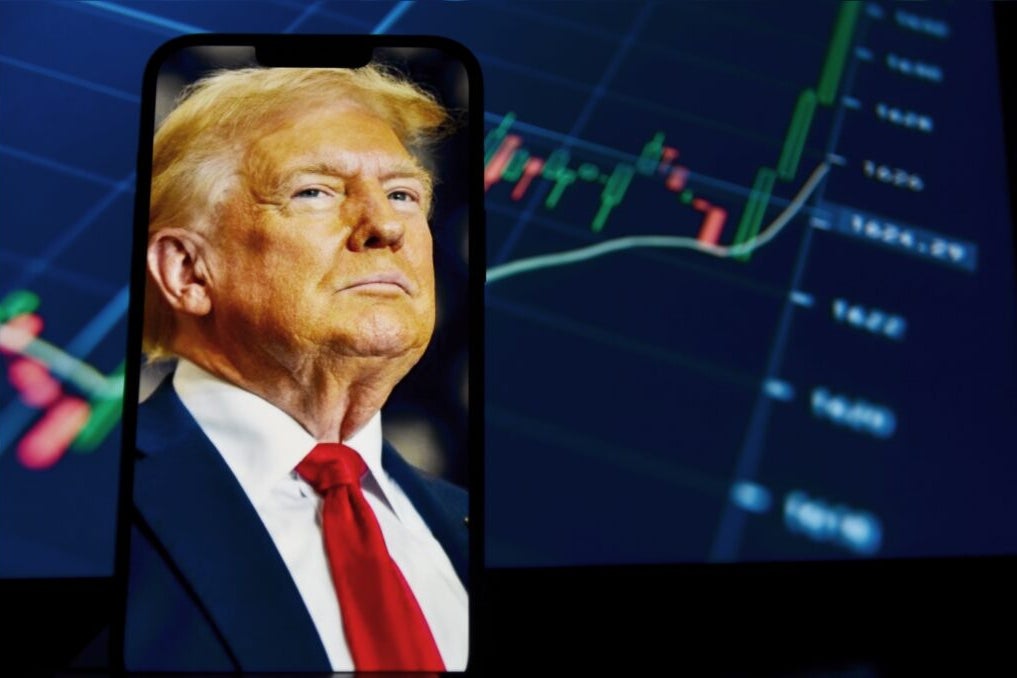Investors cheered a breakthrough drug pricing agreement between President Donald Trump and Pfizer Inc. (NYSE:PFE), sparking a sector-wide surge in health care stocks that delivered the biggest rally in five years.
The Health Care Select Sector SPDR Fund (NYSE:XLV) soared over 5% across Tuesday and Wednesday, marking its best 2-day performance since November 2020 — when news of the first COVID-19 vaccine lifted markets.
The catalyst: a historic deal that ties U.S. drug prices to international benchmarks, with Pfizer agreeing to set a precedent.
Health Care Sector Marks Best 2-Day Surge Since November 2020What’s in Trump’s Drug Deal With Pfizer?
On Tuesday, the White House announced a Most-Favored-Nation (MFN) pricing agreement with Pfizer Inc. (NYSE:PFE), aligning Medicaid drug prices in the U.S. with the lowest paid by other developed nations.
The administration estimates this will save state programs “many millions of dollars,” while setting the standard for other companies to follow.
In exchange for a three-year exemption from pharmaceutical tariffs, Pfizer Inc. agreed to a series of commitments.
The company will offer most-favored-nation (MFN) pricing to all U.S. state Medicaid programs, ensuring that American states pay no more than the lowest prices paid by other developed countries.
It will provide direct-to-patient discounts of up to 80% on select medications.
Pfizer will also repatriate foreign revenue generated through favorable U.S. trade policies and invest $70 billion to expand domestic pharmaceutical manufacturing.
Lastly, the company will participate in “TrumpRx.gov,” a new federal direct-purchasing platform offering reduced-price medicines to American consumers.
Tariffs Paused, But the Pressure Remains
The Trump administration had previously floated a 100% tariff on branded pharmaceutical products starting in October. However, officials are now using the threat of tariffs as a bargaining chip to secure similar MFN deals with other major pharmaceutical firms.
“We’re going to let the talks play out and finish these negotiations,” Commerce Secretary Howard Lutnick said during the Oval Office announcement. Trump added, “They’re all going to be good,” but warned that firms unwilling to negotiate would face equivalent tariffs.
Health Stocks Rip Higher
Investors interpreted the Pfizer agreement as a sign that harsher pricing rules — especially for Medicare and commercial markets — could be avoided.
According to Goldman Sachs analyst Asad Haider, while Medicaid is a smaller revenue stream for most large-cap drugmakers, “pricing adjustments limited only to Medicaid have been interpreted as positive by some pharma companies.”
The following health care stocks surged more than 7% on Wednesday:
Stock Name% ChangeThermo Fisher Scientific Inc. (NYSE:TMO)+10.01%Biogen Inc. (NASDAQ:BIIB)+9.45%Charles River Laboratories Intl. Inc. (NYSE:CRL)+8.77%Eli Lilly and Co. (NYSE:LLY)+8.32%Agilent Technologies, Inc. (NYSE:A)+7.91%Bio-Techne Corporation (NASDAQ:TECH)+7.89%Moderna, Inc. (NASDAQ:MRNA)+7.72%Merck & Co., Inc. (NYSE:MRK)+7.37%IQVIA Holdings Inc. (NYSE:IQV)+7.10%Danaher Corporation (NYSE:DHR)+7.03%What’s Next?
President Trump signaled more deals are coming, stating that Tuesday’s announcement was just the beginning.
With drugmakers facing a choice between steep tariffs or steep discounts, the broader sector may see further price volatility in the days and weeks ahead.
But for now, investors are betting that negotiated discounts under controlled terms are far better than unilateral government-imposed price caps or tax penalties.
Read Next:
Photo: Shutterstock

